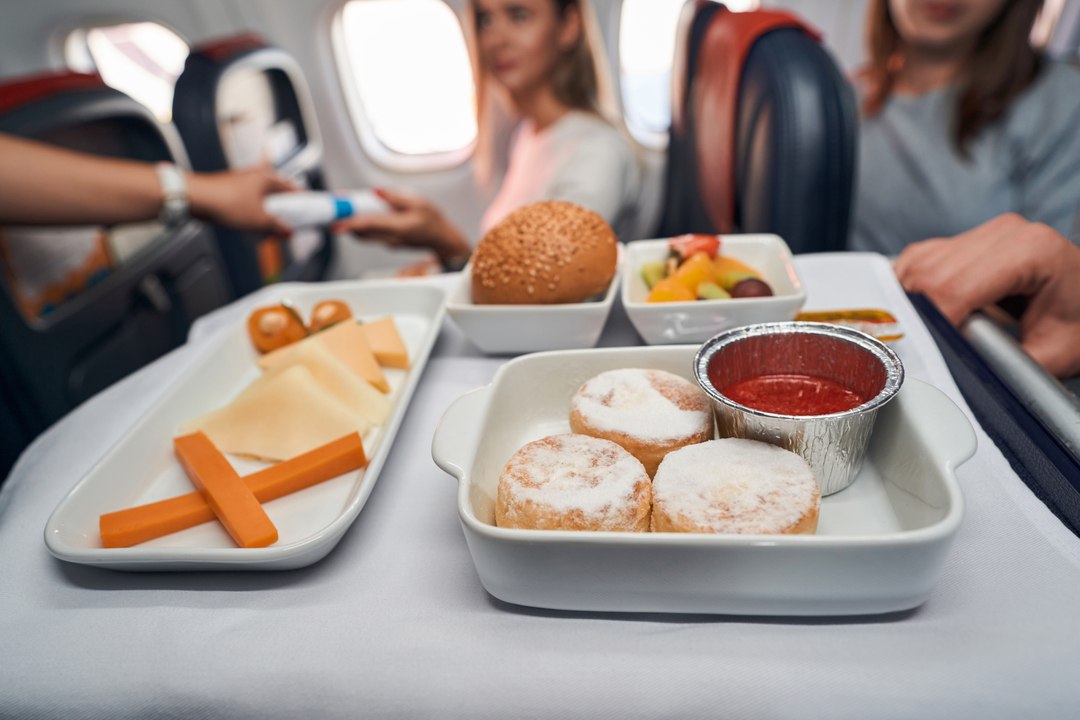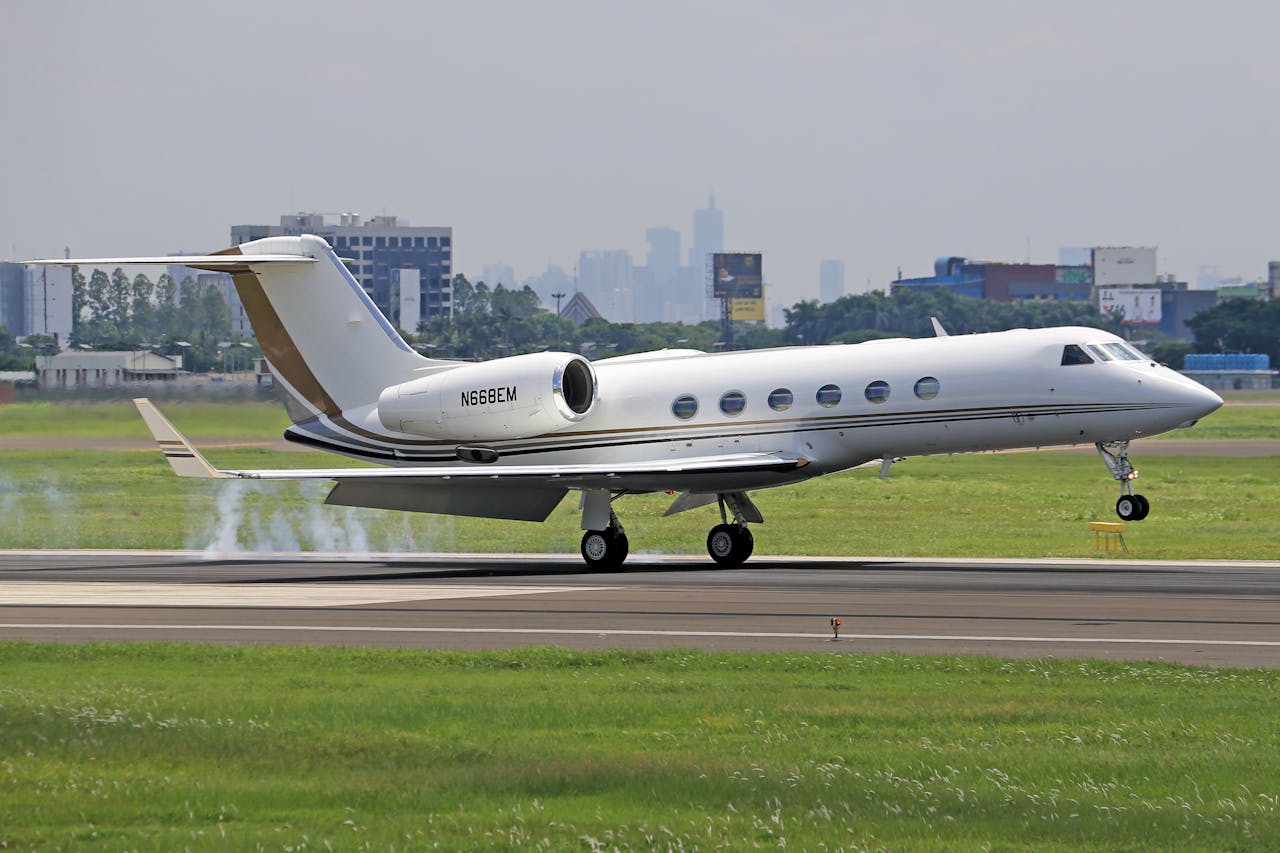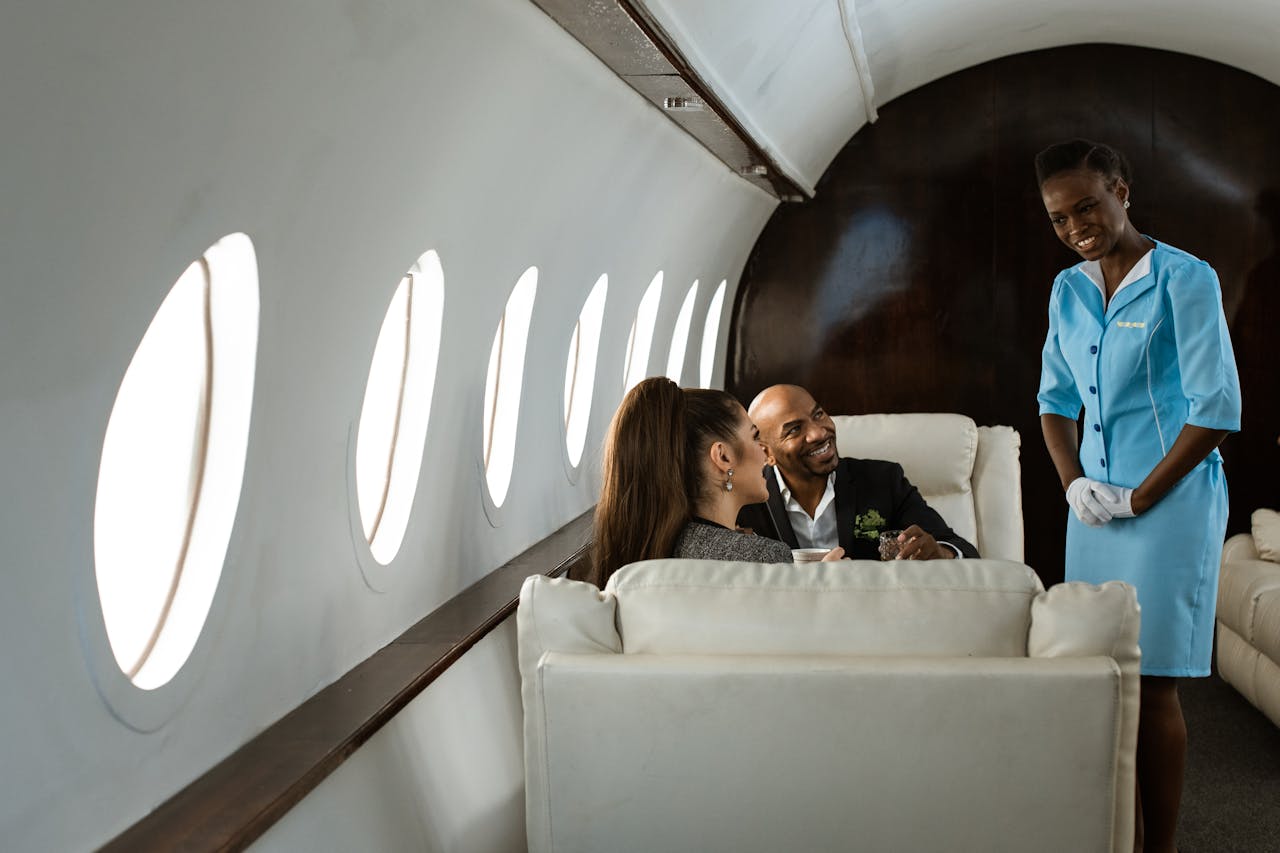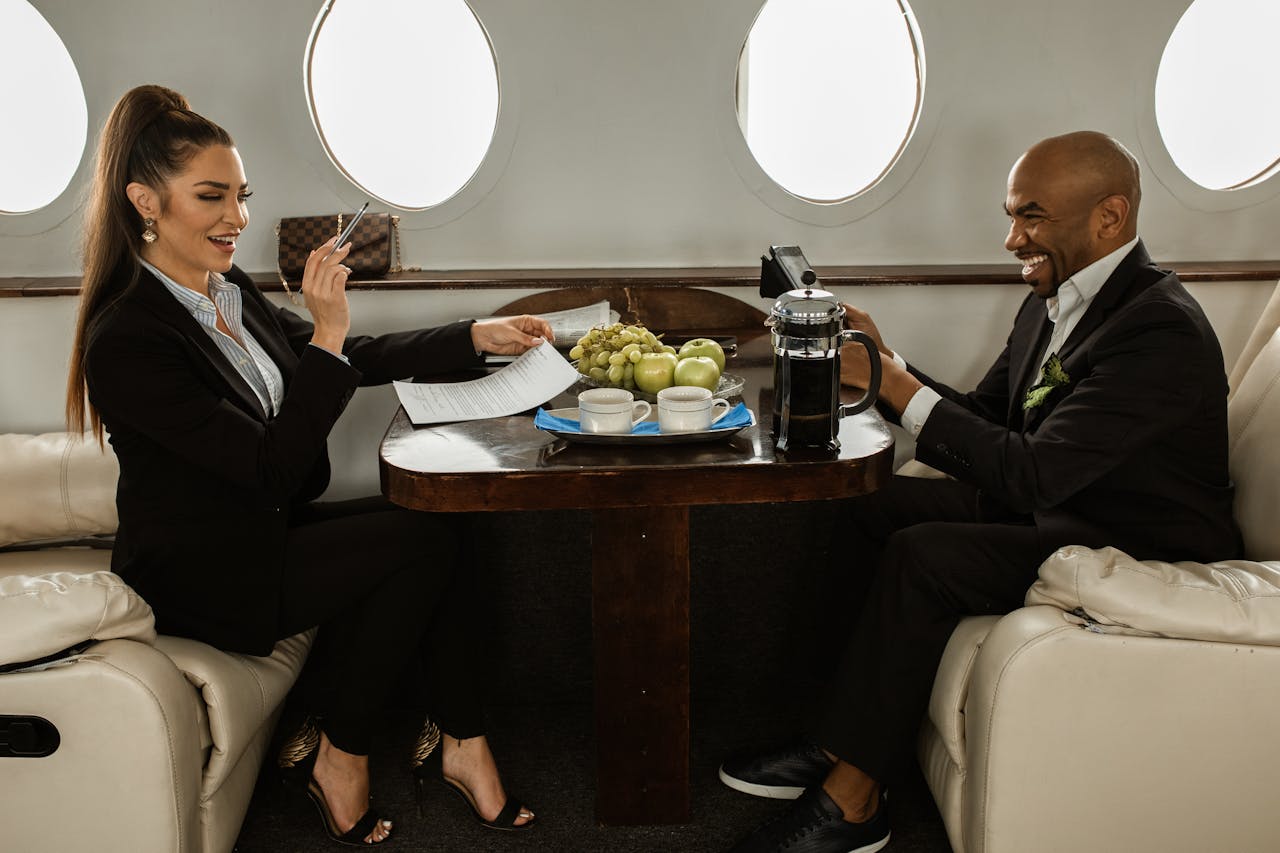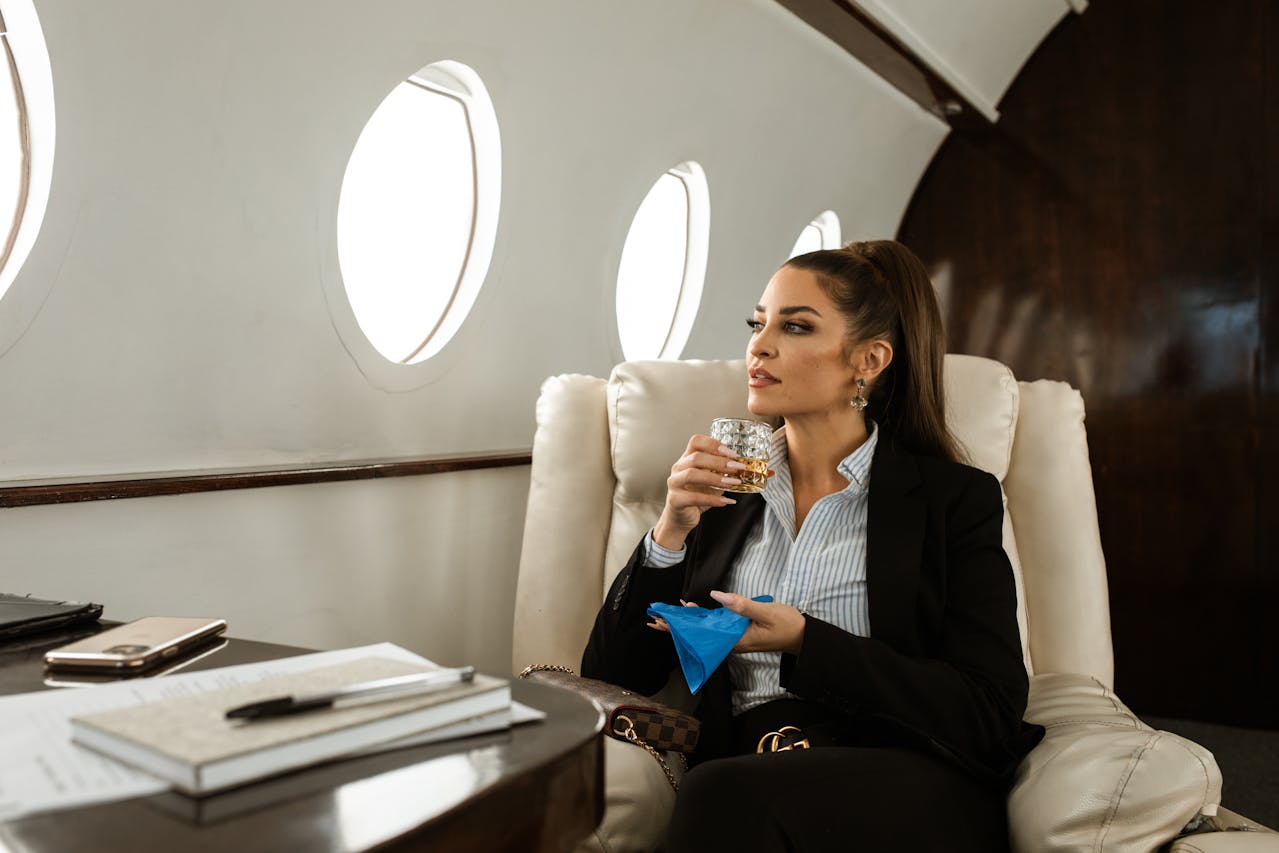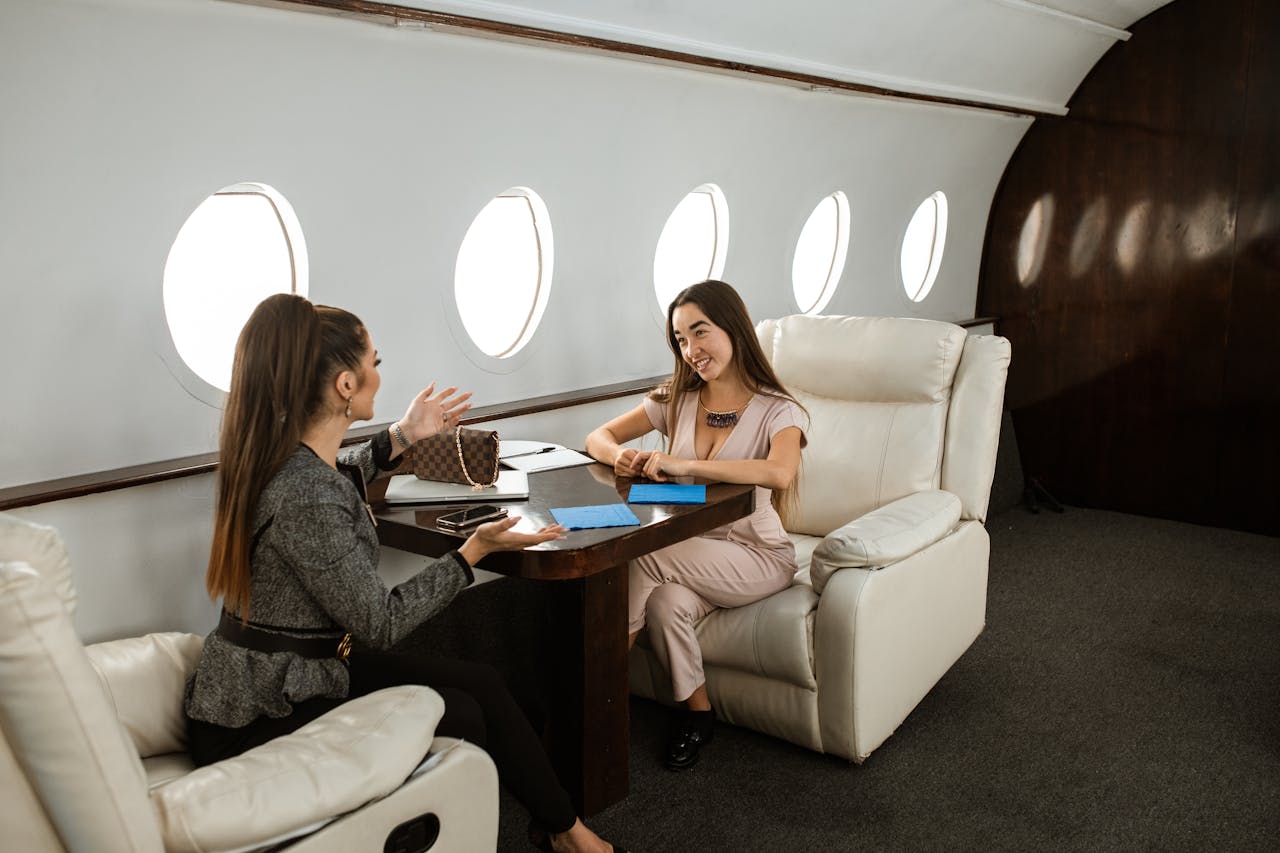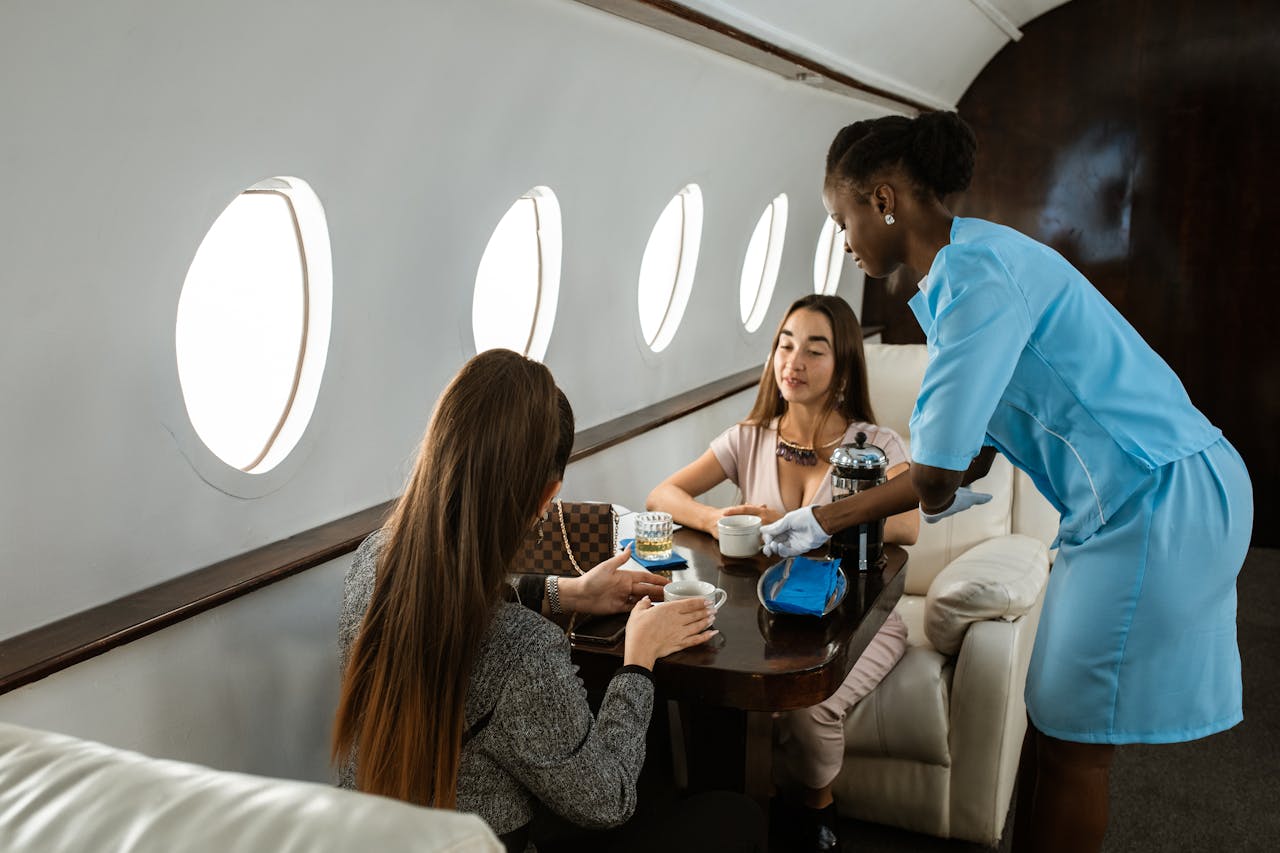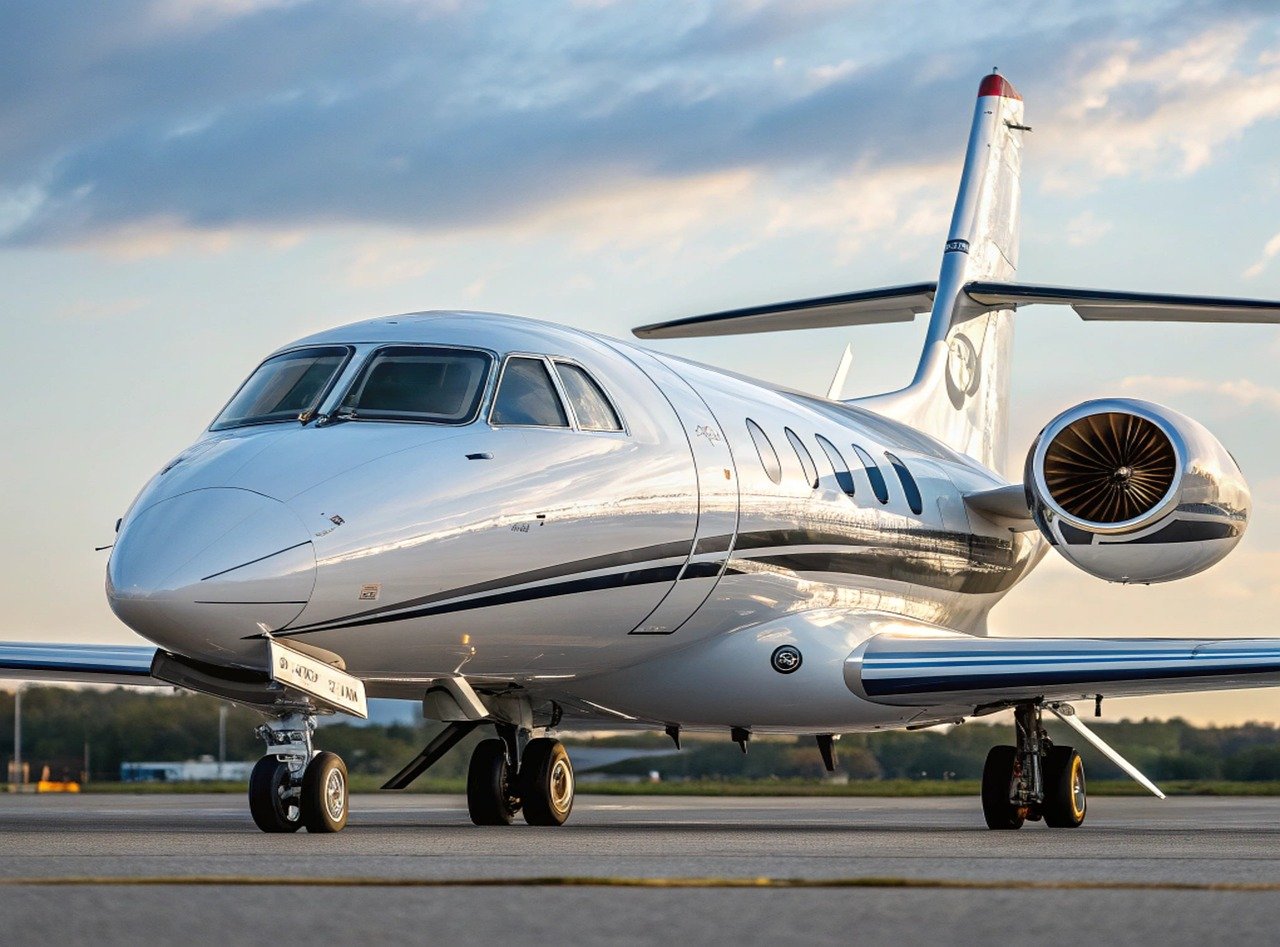The aviation industry is complex, with many parts working together, from planning flights to serving passengers. One area that does not get much attention is food waste from airline catering. Although it might not be as obvious as flight delays or lost luggage, the waste produced from meals and drinks on planes has a big impact on both the economy and the environment.
With millions of meals being prepared for passengers daily, reducing food waste in private jet catering is not just about saving money; it is also an important step toward making air travel more sustainable.
In this blog, we will look at how cutting down on food waste can benefit both the economy and the environment and how better waste management practices can make this change possible.
Also Read: Why Airplane Food Tastes Different and How Airlines Adapt
The problem of food waste in airline catering
A lot of food and drinks are wasted in inflight catering. Reports show that airlines throw away millions of tonnes of food each year. Much of it comes from leftover meals that passengers did not finish or meals that were not sold.
A large amount of this food ends up in landfills where it produces methane gas, which is harmful to the environment and speeds up climate change. The problem comes from how complicated it is to plan meals for flights. Each flight is different, with varying numbers of passengers and different tastes.
Inflight catering companies have to prepare many different types of meals to meet various dietary needs, but this often leads to too much food being made, which cannot be used again. The difficulty of predicting exactly how much food is needed and the approach of trying to please everyone often results in waste.
Financial benefits of cutting down on food waste
Reducing food waste in aviation catering can lead to significant cost savings. Airlines spend a lot of money on buying ingredients, preparing meals and disposing of waste from unsold or leftover food. By using more efficient catering methods and cutting down on waste, airlines can save a lot of money.
For example, if unused food is collected and sorted properly, airlines could reuse meals on other flights or donate them to local food banks. This would help reduce the amount of food made in the first place and save money on buying new ingredients and getting rid of waste.
Moreover, artificial intelligence (AI) can help airlines better plan meal preparation by analyzing passenger preferences. AI can use past data to predict how many meals are needed based on things like the number of passengers, previous passenger choices and flight routes. It leads to more accurate meal planning and less waste.
Related: The Future of Inflight Catering: How Technology is Transforming Airline Meals
Environmental benefits: lowering the carbon footprint
Food waste from VIP private jet catering has a big impact on the environment. Not only does the wasted food end up in landfills, but making that food uses valuable resources like raw materials, water and energy. When food is thrown away all of these resources are wasted too.
Reducing food waste can make a big difference for the environment. Studies show that cutting food waste in catering could reduce millions of tonnes of carbon emissions each year. Private jet catering companies can help by improving their waste management practices, such as composting or donating unused food, which would reduce landfills and help fight climate change.
By planning better, sorting waste more effectively and starting food donation programs, airlines can manage waste more sustainably. This would mean sending less food to landfills and lowering their carbon footprint.
Practical ways to cut down on waste in airline catering
So, the question is, what can airlines and inflight catering companies do to reduce waste? Here are some simple steps:
Donate leftover food
Airlines can partner with food banks and charities to give away unused meals to people in need. Many best inflight catering companies already do this, which helps reduce waste and show that they care about social responsibility.
Better meal planning
Airlines should focus on more accurate meal planning. This can be done using technology like artificial intelligence (AI) to predict how much food is needed. AI can analyze booking trends, past data and meal preferences to help airlines prepare the right amount of food.
Improve waste management
Aviation catering companies need to improve how they manage waste on flights. It includes setting up systems that make it easier to separate different types of waste and allow for recycling and composting. In addition, airlines can also use more eco-friendly packaging to cut down on non-recyclable materials that end up in landfills.
How passengers can help reduce food waste
Passengers can also play an important part in cutting down food waste on airlines. By teaching travelers the importance of minimizing waste, like finishing their meals or skipping unnecessary snacks, they can develop more mindful habits.
Private jet catering companies could also offer smaller meal portions or allow passengers to choose meals based on their dietary preferences. It would help reduce the amount of food that goes to waste.
Final thoughts
Reducing food waste in inflight catering brings clear benefits: saving money, showing greater social responsibility and lowering the environmental impact. Airlines can use better planning and AI tools, and improve waste management to make great strides in cutting down food waste.
Inflight catering companies that focus on sustainability and waste reduction are likely to improve their reputation, especially with passengers who care about eco-friendly practices. In the long term, reducing waste on flights is a win for both the airline industry and the planet.

